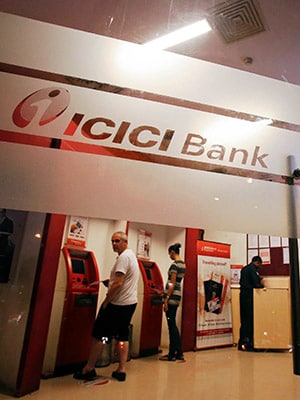
ICICI Bank shows 25% slide in Q1 net profit as provisions surge
Asset quality continues to be under pressure, interest income sees flat growth, stock closes down
Private lender ICICI Bank on Friday reported a fall in standalone net profit for the quarter ended June 2016, compared to a year earlier, weighed down by a sharp rise in provisions. Asset quality also continued to weaken, data from the bank showed.
ICICI Bank reported a 25 percent slide in profit to Rs 2,232 crore for the three months to June 2016, compared with Rs 2,976 crore a year ago. Provisions for bad loans soared 163 percent during the fiscal first quarter of FY2017 to Rs 2,515 crore compared to Rs 956 crore a year earlier.
Its shares closed 3.4 percent down at Rs 262.85 at the BSE on Friday, ahead of the earnings.
ICICI Bank’s net interest income—the difference between interest earned and interest expended—recorded flattish growth for the year at Rs 5,159 crore for the June 2016 quarter, against Rs 5,115 crore a year earlier.
The year-on-year growth in domestic advances was 17 percent. ICICI Bank achieved strong growth in its retail business, resulting in a year-on-year growth of 22 percent in the retail portfolio, a statement to the stock exchanges said.
ICICI Bank said that gross non-performing assets as a percentage of total loans were 5.87 percent in the June quarter, compared with 5.82 percent in the previous three months. The Bank’s net non-performing asset ratio was 3.01 percent at June 30, 2016 compared to 2.67 percent at March 31, 2016.
Several public sector and some private banks have been struggling to cope with rising bad loans and higher provisions to cover for a risk of defaults.
The RBI has directed banks to clean up their balance sheets by March 2017. It has introduced several regulations and powers to boost governance at the boards of banks. Massive recapitalisation of state-owned banks from the government is required, which will help them to start lending more as economic growth picks up.






